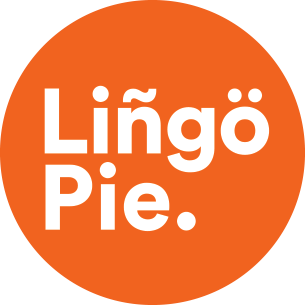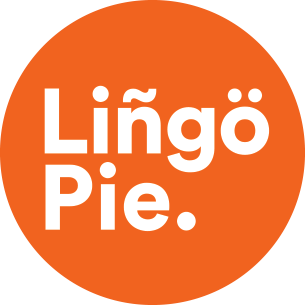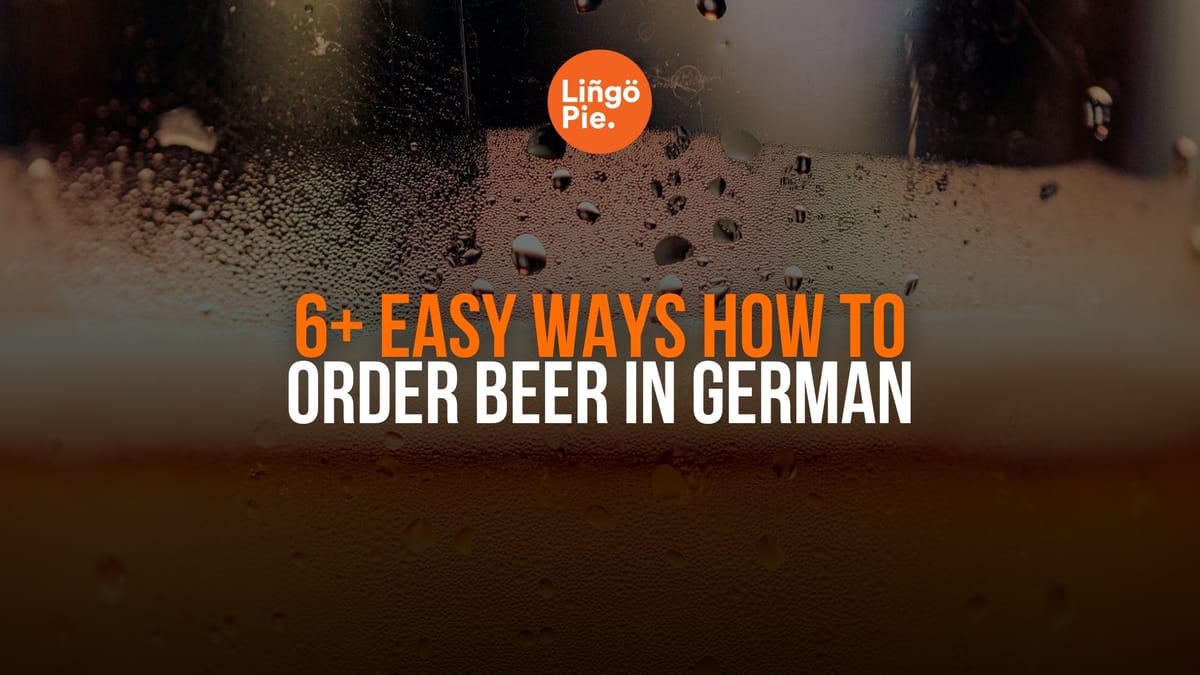Planning a trip to Israel? Hebrew may look intimidating with its unique alphabet and right-to-left writing system, but mastering just a handful of expressions will earn you smiles, respect, and maybe even new friends along the way.
In this guide, I'll walk you through 50 essential Hebrew phrases that'll help you navigate everything from ordering that perfect shakshuka breakfast to finding your way around Tel Aviv's buzzing streets. Plus, I'll share some cultural insights that will give meaning to the words you're learning.
- Language Difficulty Ranking For English Speakers
- Is Polish Hard To Learn?
- Hardest Words In Spanish: 14 Pronunciation Nightmares

What You Need To Know About Hebrew
Hebrew is one of the world's oldest languages, with a history spanning over 3,000 years. After being used primarily for religious purposes for nearly two millennia, it was remarkably revived as an everyday spoken language in the late 19th century through the efforts of Eliezer Ben-Yehuda. Today, it's the official language of Israel and spoken by about 9 million people worldwide.
Modern Hebrew (called "Ivrit" by locals) blends ancient Biblical vocabulary with new terms for modern concepts, creating a language that bridges past and present. The Hebrew alphabet consists of 22 letters, all consonants, with vowels indicated by small marks above or below the letters (though these are often omitted in everyday writing).

Hebrew Greetings and Basic Expressions
Shalom (שָׁלוֹם)
This versatile word means "hello," "hi," "peace," and can even be used as "goodbye." Shalom carries deep cultural significance in Hebrew, representing not just the absence of conflict but a state of complete harmony and well-being.
Boker tov (בּוֹקֶר טוֹב)
This phrase means "good morning" and is commonly used until around noon throughout Israel. Following Hebrew's typical adjective-after-noun structure (literally "morning good"), this greeting differs from English word order.
Erev tov (עֶרֶב טוֹב)
Used from late afternoon onwards, this phrase means "good evening" and follows the same pattern as "boker tov" (literally "evening good"). You'll commonly hear this greeting as people return home from work or meet friends for dinner at one of Israel's many vibrant restaurants.
Lehitraot (לְהִתְרָאוֹת)
This is a more formal way to say "goodbye" in Hebrew, literally meaning "to see each other again." The expression conveys hope for a future meeting, making it more than just a casual farewell. The word comes from the root "to see" (לראות - lir'ot) and reflects the warm, relationship-oriented nature of Israeli culture.
Nitra'eh (נִתְרָאֶה)
A casual way to say "see you later" to someone you expect to see again soon. This friendly farewell is more informal than "lehitraot" and is commonly used among friends and acquaintances. The word shares the same root as "lehitraot," coming from the verb "to see," emphasizing the expectation of meeting again.
Ken (כֵּן)
This simple word means "yes" in Hebrew and is essential for basic communication. The pronunciation is crisp and clear, making it easy for travelers to master. You'll use this straightforward affirmation countless times during your travels, whether agreeing to try a local delicacy or confirming directions.
Lo (לֹא)
This word means "no" in Hebrew and is pronounced with a short, crisp sound. Unlike some languages where refusals might be softened, Hebrew speakers tend to be direct, making a clear "lo" perfectly acceptable in most situations.
Bevakasha (בְּבַקָשָׁה)
This versatile word can mean both "please" and "you're welcome" depending on the context. Its dual meaning reflects efficiency in the Hebrew language, where a single word serves multiple functions. The context usually makes the meaning clear – when requesting something, it means "please," but when responding to thanks, it means "you're welcome."
Toda (תּוֹדָה)
This word means "thank you" in Hebrew and is one of the most useful phrases for travelers. For extra politeness, you can say "toda raba" (תּוֹדָה רַבָּה), which means "thank you very much." Expressing gratitude is universally appreciated, and Israelis will warmly respond to visitors who make the effort to thank them in Hebrew.


Getting to Know People
Korim li... (קוֹרְאִים לִי...)
This phrase means "My name is..." and literally translates to "they call me..." followed by your name. The expression reflects the passive construction often used in Hebrew for introducing oneself. This is typically one of the first phrases you'll use when meeting new people, making it essential for creating connections during your travels.
Eich korim lecha/lach? (אֵיךְ קוֹרְאִים לְךָ/לָךְ?)
This phrase means "What's your name?" with "lecha" used when addressing a man and "lach" when addressing a woman. Hebrew distinguishes between masculine and feminine forms in many expressions, including questions.
Na'im me'od (נָעִים מְאוֹד)
This warm expression means "Nice to meet you" and literally translates to "very pleasant." It's a polite and friendly phrase used when meeting someone for the first time. The phrase is often accompanied by a handshake, which is the common greeting in Israel, even between strangers.
Me'efo ata/at? (מֵאֵיפֹה אַתָּה/אַתְּ?)
This question means "Where are you from?" with "ata" used when asking a man and "at" when asking a woman. Israelis are generally curious about visitors and often initiate conversations with tourists. This question frequently follows introductions and serves as a natural conversation starter in both casual and formal settings.
Ani me... (אֲנִי מִ...)
This phrase means "I'm from..." and is simply followed by your country or city. It's a straightforward way to share your origins when meeting new people. Israelis are generally well-traveled and have connections worldwide, so your answer might spark interesting conversations about places they've visited or people they know from your country.

Helpful Phrases for Getting Around
Eifo...? (אֵיפֹה...?)
This question means "Where is...?" and is essential for locating anything from restaurants to restrooms. The simplicity of this single-word question makes it easy to remember and use. You can follow it with names of places, landmarks, or facilities to get directions anywhere in Israel.
Eich magi'im le...? (אֵיךְ מַגִּיעִים לְ...?)
This phrase means "How do I get to...?" and is perfect for asking directions to a specific location. The verb "magi'im" comes from the root meaning "to arrive" or "to reach." Israelis are generally helpful to tourists and will often go out of their way to provide detailed directions, sometimes even accompanying you part of the way.
Ani ta'iti (אֲנִי טָעִיתִי)
This useful phrase means "I'm lost" and can help you get assistance when disoriented in a new place. The expression comes from the verb "to make a mistake" or "to err," reflecting how getting lost is viewed as a simple error. Israelis are typically happy to help lost travelers, and admitting you're lost is often the quickest way to get back on track.
Smola (שְׂמֹאלָה)
This word means "left" and is pronounced "smoh-la" with emphasis on the second syllable. Directional words are essential for navigating unfamiliar streets and following directions. The "-ah" ending indicates movement toward that direction, a common pattern in Hebrew spatial terminology.
Yamina (יָמִינָה)
This word means "right" and is pronounced "ya-mee-na" with emphasis on the second syllable. Like "smola," the "-ah" ending indicates movement in that direction. Understanding basic directional terms will help you navigate Israel's sometimes maze-like old cities and bustling modern streets.
Yashar (יָשָׁר)
This simple word means "straight ahead" and is essential for understanding directions. The term comes from the root meaning "direct" or "upright" and is used for indicating forward movement. When combined with "smola" and "yamina," you'll have the basic vocabulary needed to follow most directions in Israel.
Tachanat otobusim (תַּחֲנַת אוֹטוֹבּוּסִים)
This phrase means "bus station" and combines "tachana" (station) with "otobusim" (buses). Public transportation is excellent in Israel, making this a useful term for budget travelers. Israel's extensive bus network connects virtually all cities and towns, providing an affordable way to explore the country.
Tachanat rakevet (תַּחֲנַת רַכֶּבֶת)
This phrase means "train station" and uses "tachana" (station) with "rakevet" (train). Israel's train system efficiently connects major cities, particularly along the coastal plain. The trains are modern, comfortable, and often faster than buses for longer journeys between major cities.
Kama ole hakartis? (כַּמָּה עוֹלֶה הַכַּרְטִיס?)
This question means "How much is the fare?" and is useful when using public transportation. The phrase literally asks "how much does the ticket cost?" Understanding transportation costs helps you budget your travel expenses. Israel has a standardized fare system for most public transport, with discounts available for multiple rides.


Eating and Drinking
Ani rotze/rotza... (אֲנִי רוֹצֶה/רוֹצָה...)
This phrase means "I would like..." with "rotze" used by men and "rotza" by women. The gender distinction is important in Hebrew verbs, even in simple requests. This versatile phrase will be your go-to expression for ordering food, requesting services, or expressing preferences throughout your trip.
Tafrit, bevakasha (תַּפְרִיט, בְּבַקָשָׁה)
This phrase means "The menu, please" and combines "tafrit" (menu) with the polite "bevakasha" (please). It's the essential first step in any dining experience in Israel. Many restaurants in tourist areas have English menus available, but asking in Hebrew often earns appreciative smiles from the staff.
Mayim (מַיִם)
This word means "water" and is a plural noun in Hebrew, though we translate it as singular in English. In the hot Israeli climate, staying hydrated is crucial, making this a word you'll use frequently. Tap water is safe to drink throughout Israel, and restaurants will provide it for free upon request.
Ta'im! (טָעִים!)
This exclamation means "Delicious!" and is used the same way for both men and women describing food. The word derives from the root for "taste" and is a simple way to compliment a chef or host. Food is central to Israeli culture, and expressing appreciation for a meal is always well-received.
Cheshbon, bevakasha (חֶשְׁבּוֹן, בְּבַקָשָׁה)
This phrase means "Check, please" and combines "cheshbon" (bill or account) with "bevakasha" (please). It's the polite way to request your bill when you're ready to pay at a restaurant. Unlike in some countries, Israeli servers typically won't bring the check until you specifically request it, allowing you to linger as long as you wish.
Yesh lachem ochel tzimchoni? (יֵשׁ לָכֶם אֹכֶל צִמְחוֹנִי?)
This question asks "Do you have vegetarian food?" and is increasingly useful as dietary preferences diversify. Israel is quite vegetarian-friendly, with many delicious plant-based options available throughout the country. The rich tradition of Middle Eastern mezze includes many vegetarian dishes like hummus, falafel, and tabbouleh.

Shopping and Transactions
Kama ze ole? (כַּמָּה זֶה עוֹלֶה?)
This question means "How much does it cost?" and is essential for any shopping expedition. The phrase literally asks "how much does this rise/go up?" – an interesting linguistic perspective on pricing. Prices in stores are generally fixed, but in markets (shuks), some bargaining is expected and even appreciated.
Ze yoter midai yakar (זֶה יוֹתֵר מִדַּי יָקָר)
This phrase means "That's too expensive" and is useful for negotiating in markets. The expression politely indicates that you find the price unreasonable without being confrontational. In markets like Jerusalem's Mahane Yehuda or Tel Aviv's Carmel Market, vendors often start with higher prices, expecting some negotiation.
Efshar hanacha? (אֶפְשָׁר הֲנָחָה?)
This question asks "Can I have a discount?" and is a polite way to start price negotiations. The word "efshar" (possible) softens the request, making it more of an inquiry than a demand. Bargaining is common in Israeli markets but should be done with good humor and reasonable expectations.
Ani ekach et ze (אֲנִי אֶקַּח אֶת זֶה)
This phrase means "I'll take it" and signals that you've made your decision to purchase. The verb "ekach" comes from the root meaning "to take" and is used for finalizing transactions. Having this phrase ready helps conclude your shopping efficiently once you've settled on a price.
Atem mekablim kartis ashrai? (אַתֶּם מְקַבְּלִים כַּרְטִיס אַשְׁרַאי?)
This question asks "Do you accept credit cards?" and is useful in smaller establishments or markets. While most places in Israel accept credit cards, some smaller vendors or market stalls may prefer cash.

Emergencies and Health
Ezra! (עֶזְרָה!)
This urgent call means "Help!" and is simple, short, and potentially vital in emergency situations. The word is easily recognizable and will immediately alert Israelis that you need assistance. Israelis generally respond quickly to calls for help, reflecting the community-oriented nature of the society.
Ani tzarich/tzricha rofe/rofa (אֲנִי צָרִיךְ/צְרִיכָה רוֹפֵא/רוֹפְאָה)
This phrase means "I need a doctor" with gender variations for both the speaker and the doctor. "Tzarich" is used by men and "tzricha" by women, while "rofe" refers to a male doctor and "rofa" to a female doctor.
Eifo beit merkachat? (אֵיפֹה בֵּית מִרְקַחַת?)
This question asks "Where is the pharmacy?" and combines "eifo" (where) with "beit merkachat" (pharmacy, literally "house of mixing"). Pharmacies are readily available in Israeli cities and towns, with many offering extended hours. Most pharmacists speak English and can provide basic medical advice for minor ailments.
Yesh li alergya le... (יֵשׁ לִי אַלֶרְגִּיָה לְ...)
This important phrase means "I'm allergic to..." and should be memorized by travelers with food or medication allergies. The structure "yesh li" (I have) is commonly used in Hebrew to express possession or conditions. Food allergies are well-understood in Israel, especially in restaurants catering to international visitors.
Tizman ambulans! (תִּזְמַן אַמְבּוּלַנְס!)
This urgent request means "Call an ambulance!" and could be crucial in a medical emergency. The emergency number in Israel is 101 for ambulance services. Israel's emergency medical service, Magen David Adom, is highly efficient and equipped with modern technology and well-trained paramedics.

Cultural and Social Expressions
LeChayim! (לְחַיִּים!)
This celebratory toast means "Cheers!" and literally translates to "to life!" It's used when drinking together in social gatherings. The expression reflects the life-affirming attitude prevalent in Israeli culture, where celebrating good moments is valued. You'll often hear this accompanied by the clinking of glasses at dinner parties, in bars, or at celebrations.
Ma nishma? (מָה נִשְׁמַע?)
This casual greeting means "What's up?" and literally translates to "what's heard?" It's commonly used among Israelis as an informal way to start conversations. The phrase reflects the direct communication style common in Israel, where people often skip formalities and move straight to genuine conversation. Responding with "hakol beseder" (everything's fine) is a standard reply.
Ein ba'aya (אֵין בְּעָיָה)
This reassuring phrase means "No problem" and literally translates to "there is no problem." It reflects the relaxed attitude toward life's challenges common in Israeli culture. This expression is used frequently in daily interactions, from customer service situations to social agreements, indicating a flexible and accommodating approach to life.
BeHatzlacha! (בְּהַצְלָחָה!)
This encouraging expression means "Good luck!" and is used to wish someone success in their endeavors. The word comes from the root meaning "success" and carries genuine good wishes. Israelis commonly use this phrase before exams, job interviews, or any challenging situation, showing their supportive nature.
Chag Sameach (חַג שָׂמֵחַ)
This festive greeting means "Happy holiday" and is used during Israel's many religious and national holidays throughout the year. The expression combines "chag" (holiday) with "sameach" (happy) and is universally used regardless of the specific holiday.
Slicha (סְלִיחָה)
This versatile word means "Excuse me" and is used both to apologize and to get someone's attention. The term derives from the root meaning "to forgive" or "to pardon." In crowded markets or busy streets, you'll hear this word frequently as people navigate through crowds or try to get the attention of shopkeepers.
Yesh po WiFi? (יֵשׁ פֹּה וַויי-פַיי?)
This practical question asks "Is there WiFi here?" and is essential for staying connected while traveling. The phrase combines "yesh" (there is) with "po" (here) and the international term "WiFi." Israel is a highly connected country with excellent internet infrastructure, and free WiFi is available in many cafés, restaurants, and public spaces.
Ani lo mevin/mevina (אֲנִי לֹא מֵבִין/מְבִינָה)
This honest admission means "I don't understand" with "mevin" used by men and "mevina" by women. The phrase comes from the root meaning "to understand" or "to comprehend." Israelis appreciate directness, so stating clearly that you don't understand something is preferable to pretending to follow the conversation.
Ata/At medaber/medaberet Anglit? (אַתָּה/אַתְּ מְדַבֵּר/מְדַבֶּרֶת אַנְגְּלִית?)
This question asks "Do you speak English?" with gender variations for both the address and the verb. In tourist areas, many Israelis speak English well, but this phrase is useful in more remote locations. English proficiency is widespread in Israel, especially among younger generations and in urban areas, but knowing this phrase can help in situations where language barriers arise.
Learning Hebrew with Lingopie
If these phrases have sparked your interest in learning more, get excited because Lingopie officially rolled out its Hebrew content! With this expanded content library, you can finally continue your language journey through real Israeli TV shows and movies with interactive subtitles, immersing yourself in natural, conversational Hebrew while enjoying entertaining content.
So what are you waiting for? Click below to unlock a FREE 7-day trial to test it out!








![How To Say I Love You In Hebrew [Guide]](/blog/content/images/size/w300/2026/02/How-To-Say-I-Love-You-In-Hebrew-.png)
![How To Say Happy New Year In Hebrew [15+ Terms And Phrases]](/blog/content/images/size/w300/2025/12/how-to-say-happy-new-year-In-hebrew.jpeg)

